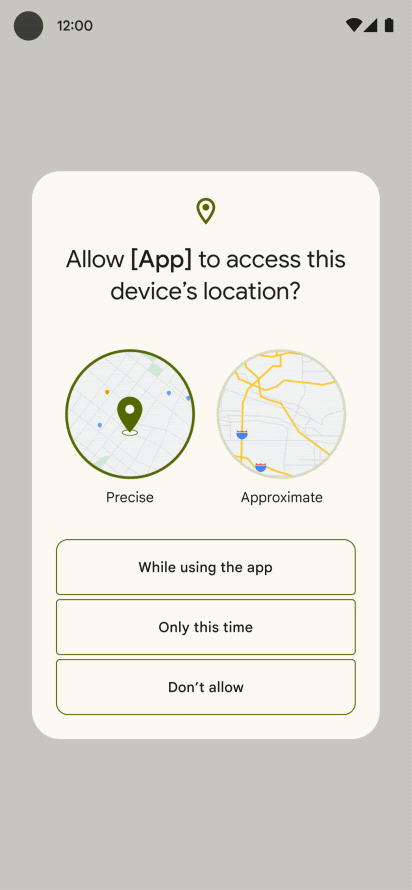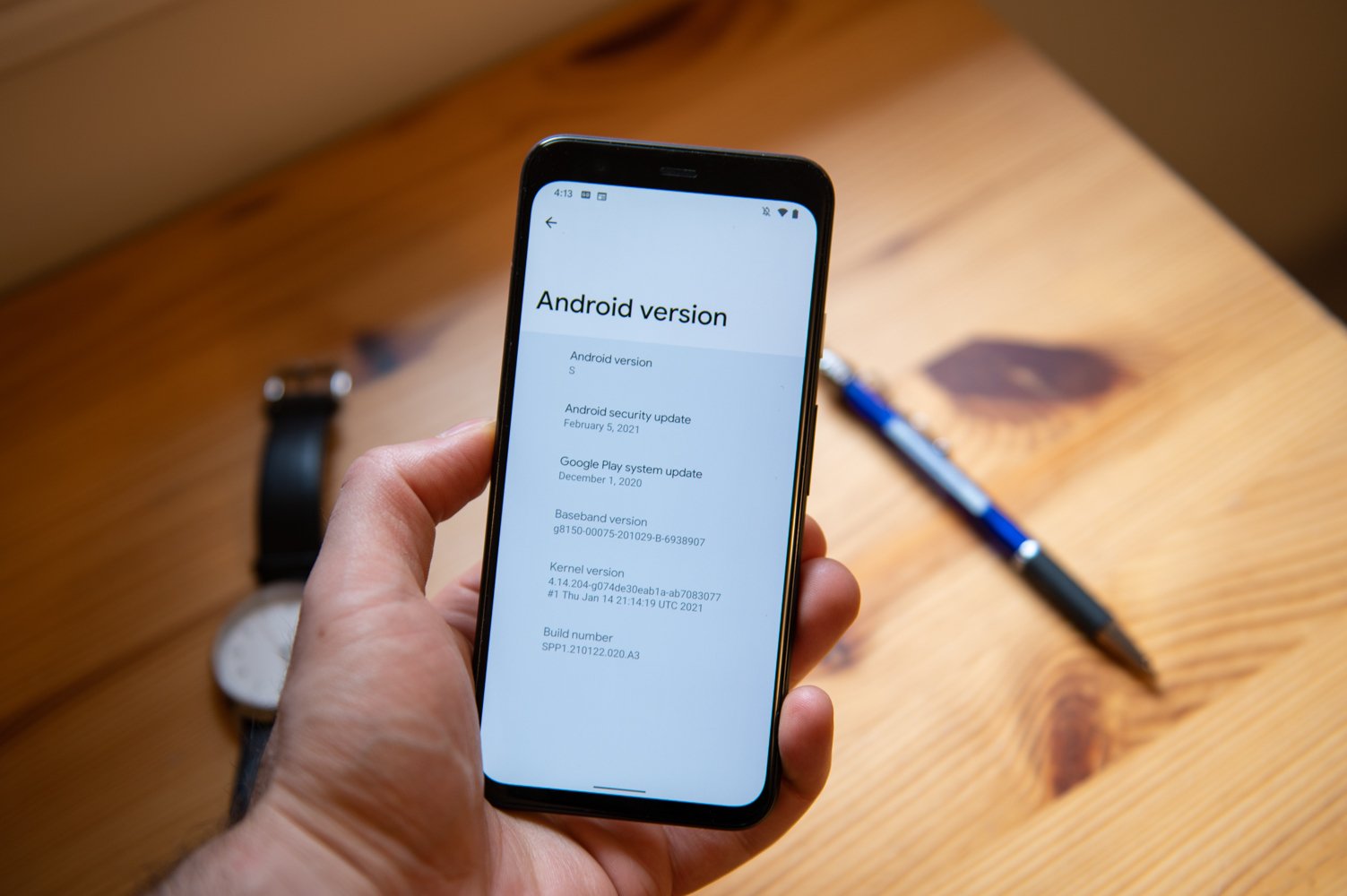Best answer: Precise location settings use sensor data from your phone like GPS to pinpoint you on a map, Approximate location uses Wi-Fi and cell towers to see where you are within 100 meters.
This is a big change for both users and developers
One of the best new things in Android 12 is the ability for users to decide whether an app is allowed to access your precise location. It works on the best Android phones, an entry-level phone, or all the ones in between. It builds on top of the changes made to the OS to allow location tracking only when an app is open and running or to grant the permission just once and be prompted the next time you open the app. These changes are great for user privacy and they have been a long time coming.
If your app targets Android 12 and requests the ACCESS_FINE_LOCATION runtime permission, you must also request the ACCESS_COARSE_LOCATION permission. You must include both permissions in a single runtime request. — Google Developers
There's a bit of confusion about how this is going to work. Well, if an app is built with Android 12 in mind (Google calls that "targeting Android 12") the developer must include support for coarse location (that's the approximate location in the settings) and precise location if the app has a legitimate need for precise location. The app must work if the user only decides to grant permission for approximate location only.
If the app was built for an earlier version of Android, users will still be able to go into the Apps section of their phone settings and grant approximate location-only permission. Developers should try to make sure this doesn't break anything but we all know how that will work out. Either way, if you have a phone running Android 12 you will be able to decide which apps are allowed to get that precise location data. That is awesome.
What is the difference between precise and approximate location info?

That leads to a couple of questions: what is the difference between a precise and an approximate location, and why in the world would you ever want to grant precise location to an app?
- Precise location uses sensor data from your phone like GPS or an altimeter to determine where you are. This data is precise, thus the name, and in ideal conditions can pinpoint you down to a meter. That means you could be in the middle of your driveway and an app would think you're at the end of the driveway in a worst-case scenario.
- Approximate location uses Google Play services to detect where you are based on Wi-Fi and cellular data. This can locate you within 100 meters, so when using it, an app could know which block you are on but not know which building you're standing in front of.
A few things to note here. Your phone controls how the location data is sent, and no matter which version of Android you're running you can go into the settings and decide whether or not to enable precise/GPS location. The difference is that prior to Android 12, this setting was system-wide. If you decided you wanted to enable precise location data for a specific app, you would need to change the setting before you opened it.
Because this data is decided by your phone, older apps do not need to be updated in order to give you the choice. As mentioned above, the apps could break if you choose to grant approximate location only permissions, but you still have the ability to keep an app from knowing exactly where you are in real-time.
This change is important because there are apps you want to provide your exact location to, like Google Maps or another app that can provide turn-by-turn navigation. When an app thinks you're 100 meters away from where you really are, it's not going to be able to tell you a turn is coming up or that the lane you are in is ending. It would be even worse when it comes to walking navigation, potentially telling you to change direction at totally the wrong street or intersection.
Android 12 has a big focus on user privacy, and while we aren't yet at a place where we feel safe knowing our phones aren't tracking what we do when we do it, changes like this are a big step in that direction. We should decide when an app knows exactly where we are rather than be forced to give in to the whims of a developer or an advertisement network. This is one of the things that makes Android 12 so awesome.
Android 12 ASAP
Google Pixel 5
$699 at Amazon $700 at Best Buy $699 at B&H
Try Android 12 right now
You can install the Android 12 beta on the Pixel 5 right now and it will be one of the first phones to get the update once its final version is released. On top of all that, it's a great phone that most users love and the price tag isn't going to break your wallet.

Tidak ada komentar:
Posting Komentar